The Federal style Architecture is often described as a refinement of Georgian style architecture drawing on contemporary European trends.
In particular the work of Robert Adam (1728-1792), who traveled to the Mediterranean to study classical Roman and Greek monuments.
His Federal Architecture Style was based on first-hand observation rather than interpreted through buildings of the Italian Renaissance.
During this period, the first true architects appeared on the American scene.
Among them was Charles Bulfinch (1763-1844) who is credited with bringing the Federal architectural style to United States after his own European tour.
Asher Benjamin’s (1773-1845) famous pattern books brought Bulfinch’s interpretations of the Adam style to thousands of American carpenters and house wrights.
Other notable architects of the period include Benjamin H. Latrobe (Philadelphia and Virginia), Samuel McIntire (Salem, Massachusetts), and Alexander Parris (Maine).
Federalist Architecture & Federal Architectural Style
Geographic Range
Federal style was a sign of urban prosperity, reflecting the growing wealth of the new nation.
Examples stretch from Maine to Georgia with the zenith in prosperous port cities on the eastern seaboard, particularly Boston, Salem, Newburyport, and Marblehead.
Massachusetts; Newport, Providence, Warren, and Bristol, Rhode Island; Portland and Wiscasset.
Maine; Portsmouth, New Hampshire; and Philadelphia, New York, Baltimore, and Washington, D.C.
Vernacular examples survive throughout settled areas of the nineteenth century and are least common on the westward edges of expansion and inland rural areas of northern New England that were still sparsely settled.
Typical Features of Federal architecture design style:
- Two-story, rectangular construction
- Side gable or low-hipped roofs
- Raised foundations
- Semi-circular or elliptical fanlights over front entry
- Elaborate door surrounds with decorative crowns or small entry porches (often elliptical or semicircular)
- Cornice emphasized with decorative molding (usually modillions – refined dentils)
- Double-hung sash windows (six over six) sash separated by thin wooden muntins
- Windows arranged in symmetrical rows, usually five-ranked (less commonly three or seven)
- Northern preference for wood frame, clapboard siding; southern examples used brick construction
- Louvered shutters
Interiors Features of Federal Design style
- Creative floor plans with elliptical, rounded rooms and domed or arched ceilings
- Graceful decorative ornament carved in wood or cast in plaster applied to mantels, walls, ceilings, etc.
- Curved open staircases that included classically decorated pediments and pilasters
- Decorative motifs include: swags, garlands, urns, and classical geometric patterns (motifs also appear on exterior door surrounds, entry porches, over windows, along cornices or in paneled wall inserts)
High-Style Elaborations Design style
- Flushboard siding (on front facade) meant to imitate stone
- Palladian windows – often centered above main entry
- Roof-line balustrades
- Flat or keystone lintels above windows
- Windows recessed into blind arches in brick examples
- Triple-hung windows extending to floor at primary story with shorter windows at upper stories
- Fanlights and sidelights incorporate delicate tracery in wood or lead
- Town houses: iron railings and balconies; bowed or polygonal bays (particularly in Boston)
- Three-story, hipped-roof, high-style examples common in Salem and Newburyport, Massachusetts, and coastal New England.
Examples Photo of Federal Style
Like the preceding Georgian period, domestic architecture in the federal architectural style typically came in the form of a simple box, two rooms deep, with doors and windows arranged in strict symmetry.
However, creative floor plans with elliptical and round spaces were introduced during this period and the simple exterior box was often modified by projecting wings (particularly in high-style examples).
In addition, there is a lightness and restrained delicacy to federal architectural style components in comparison to their heavier, more ponderous Georgian counterparts.

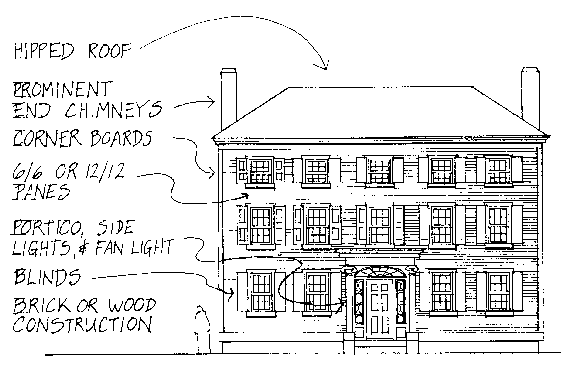
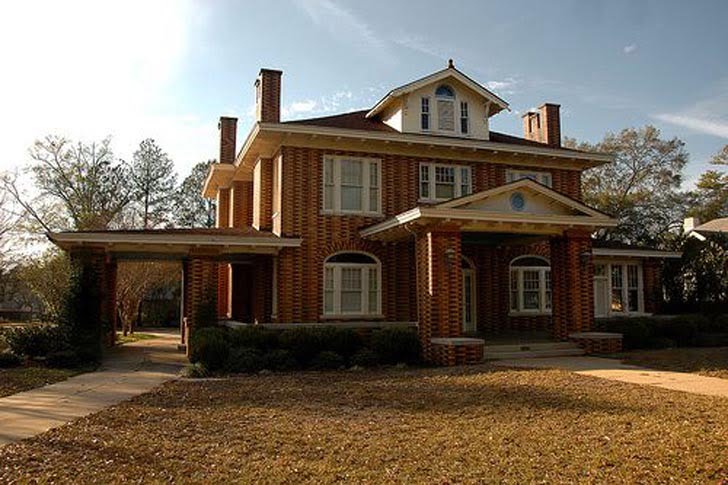
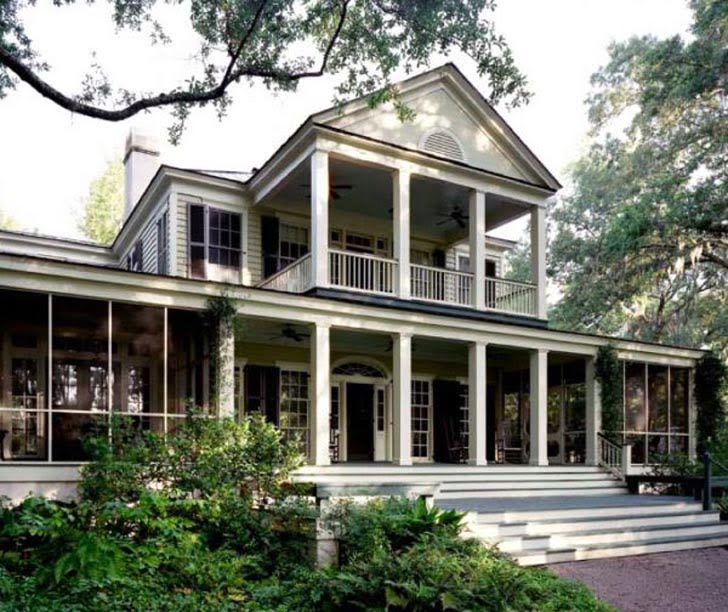
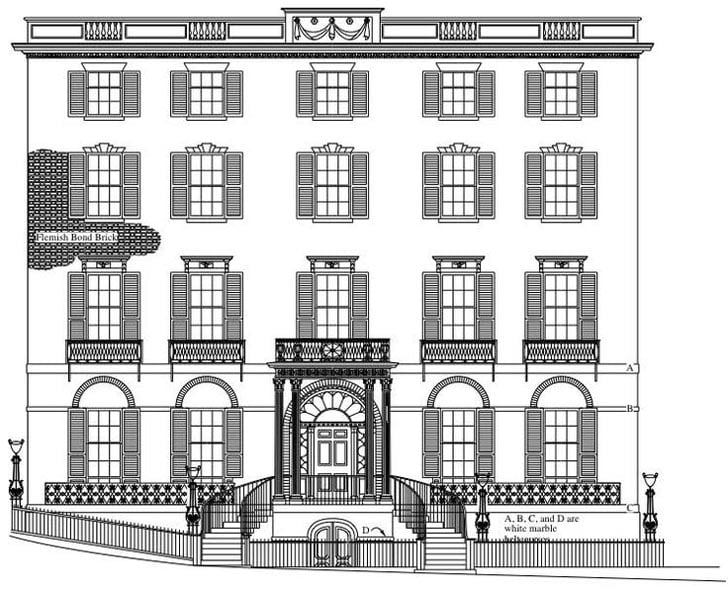
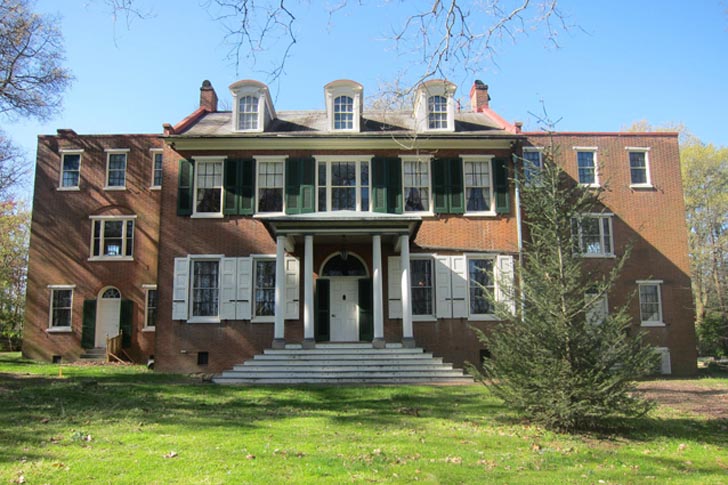
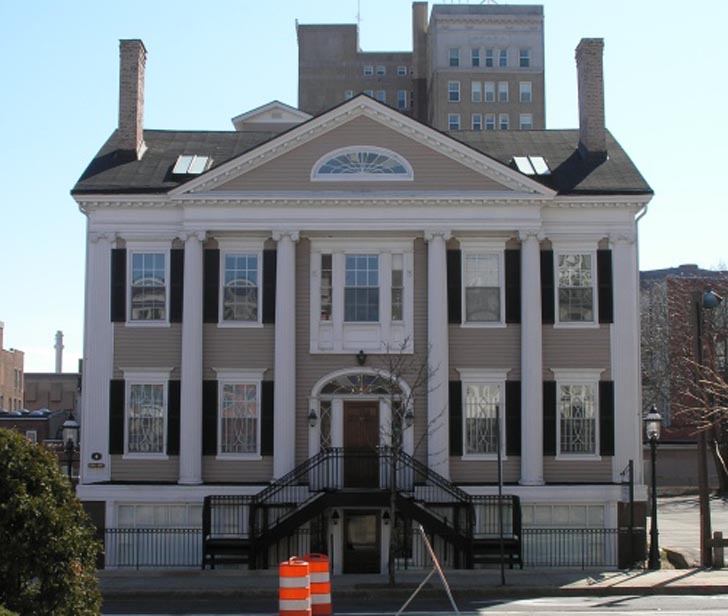
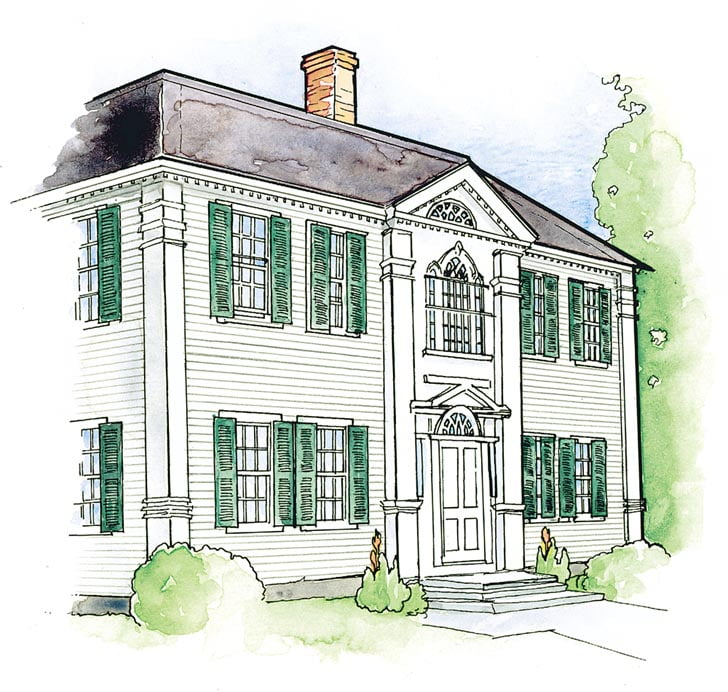
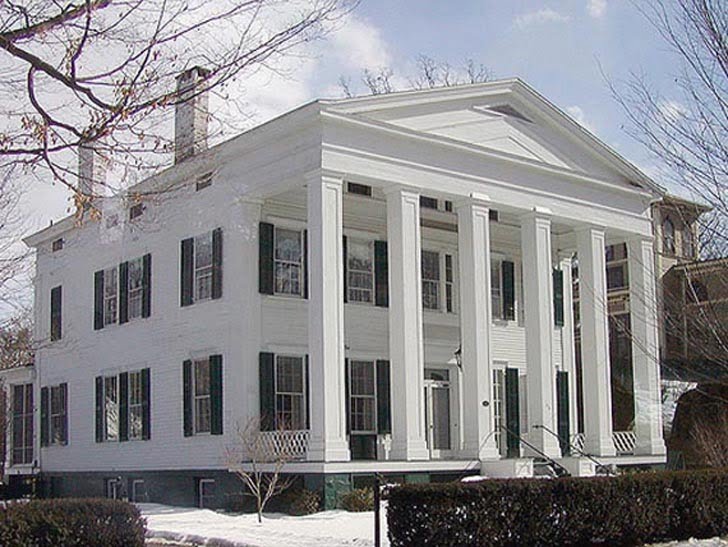
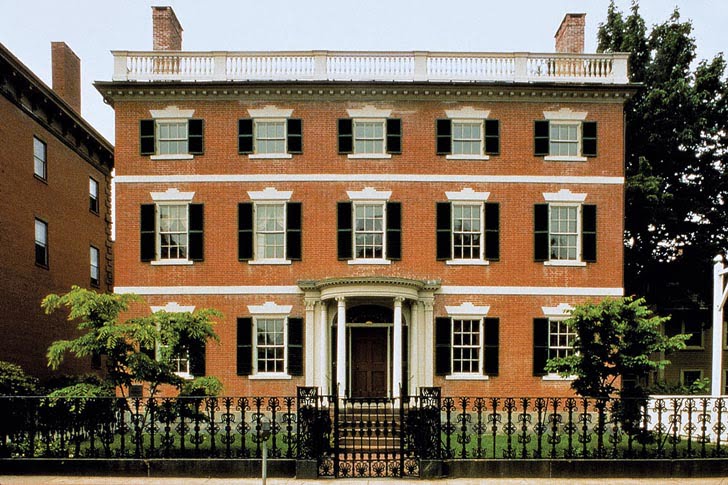
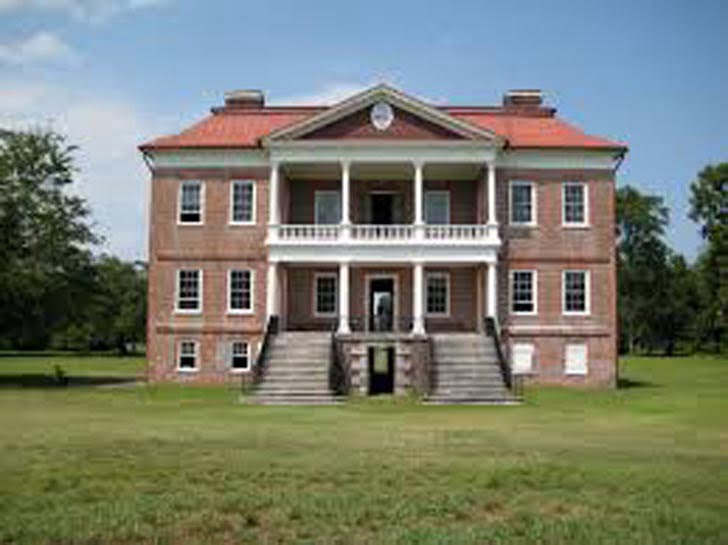
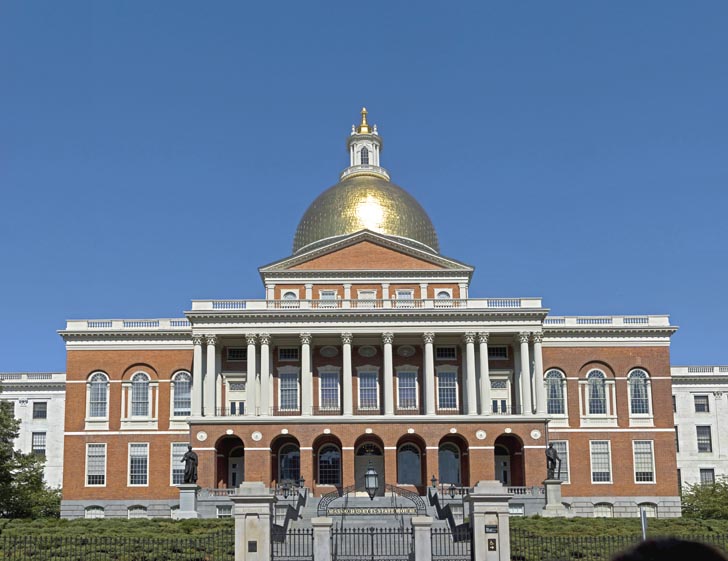
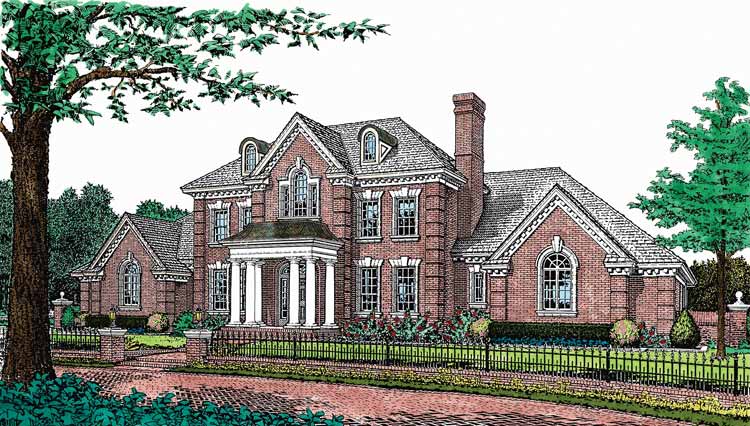






Leave a Comment
You must be logged in to post a comment.